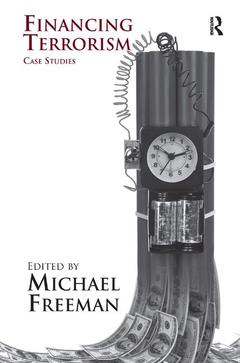Description
Financing Terrorism
Case Studies
Coordinator: Freeman Michael
Language: English
Subject for Financing Terrorism:
Keywords
Tamil Nadu; terrorist; Federal Bureau Of Investigation; Christopher L'Heureux; Inter-American Drug Abuse Control Commission; Dan Furleigh; LTTE Operative; Duke Pope; International Islamic Charitable Organization; Doug Philippone; Trade Based Money Laundering; Moyara Ruehsen; Terrorist Financing; Geoffrey Kambere; Counter Terrorism Funding; Puay Hock Goh; Ulster Defense Association; Pranav Kumar; Financial Action Task Force; Fulgence Msafiri; Provisional IRA; Reese Justin Y; ASG; Christopher L; Corley; Colombian Government’s Effort; Wade A; Germann; Al Haramain Islamic Foundation; Eric Hartunian; Terrorist Groups; Richard A; Polen; Moro National Liberation Front; Krishnamurti Mortela; Tri-Border Area; Stein-Fr Kynoe; Plan Colombia; Eduart Bala; Irish National Liberation Army; Saul Hiram Bandala; Terrorist Organizations; Celso Andrade-Garzon; Insurgent Groups; Islamic NGOs; PKK; Badr Organization; MILF
Publication date: 05-2012
Support: Print on demand
Publication date: 01-2017
· 15.6x23.4 cm · Paperback
Description
/li>Contents
/li>Biography
/li>




